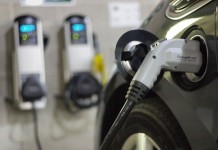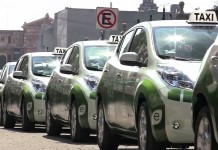On this edition of Forum Friday, we will explore an interesting question raised by the forums at Autotalk.com. As new alternative fuel source vehicles hit the road exponentially faster, it would appear that finding a solution to save fossil fuels is the automotive industry’s largest concern. The two most common alternatives as of now are gas/electric hybrids and electric vehicles. There may be more hybrids on the road now than electric vehicles, but that still isn’t stopping manufactures scrambling to create their own “Nissan LEAF”. For this reason, the posters at Autotalk.com’s forums have raised the question, what is better overall: hybrids or electric vehicles?
It would be safe to assume that both applications operate in an environmentally friendly way. Gas/electric hybrids produce such low emissions that there is no reasonable justification for putting the “global warming” blame upon them and electric vehicles simply produce no emissions. Looking at the issue with a strictly environmental view-point, the electric vehicle will come out on top as it uses no depleting resource and puts out zero ozone-killing gases. One poster in the thread of interest made this point, saying that EVs would appear to be a better friend for the Earth.
Electric Vehicles may operate in a more environmentally friendly fashion, but they have yet to overcome their greatest downfall: driving range. There are only a few, fully electric production vehicles available as of now and none of them have ever managed to out “drive” a gas/electric hybrid. The Nissan LEAF for example is only able to travel between 60 to 100 miles on a full charge. That range also has the potential of dropping if driven hard or at higher speed. This means that the electric car is simply unable to support the lifestyle of a distance commuter. For those people who make up a very large percent of the globe’s drivers, the gas/electric hybrid will come out on top compared to an electric vehicle.
Manufactures are even starting to realize this as many have started to incorporate “range extenders” such as combustion engines into their “electric cars”. The Chevrolet Volt for example only uses its 1.4 liter gasoline engine when it can no longer run completely on electric power. Volvo is currently working on a similar project and is toying with the use of a diesel power-plant i.e. a locomotive. These range extenders may help electric vehicles but they still are not a solution to the problem of fossil fuels. One poster made this clear and also brought up the point that even though electric vehicles produce no emissions, they are still produced by a process that relies on fossil fuels.
The battle to determine whether or not hybrids are better than electric vehicles will, in all honesty, never be resolved. Both operate more environmentally friendly than say a conventional vehicle, but what about how they are produced? Toyota got into a lot of media trouble a few years ago when it was revealed that the manufacturing process of their Prius’s now no longer in use nickel batteries was damaging the environment much more than a Hummer ever could. Manufactures are now stepping up to the plate to create facilities that won’t cause as much damage as older engineering. Mitsubishi for example has created an electric vehicle charging station that is powered by solar energy.
If you have a thought about what is overall better, the gas/electric hybrid or the electric vehicle, sign up to Autotalk.com’s forum page and post away. Or, leave a comment on this stories comment section.
http://www.autotalk.com/forums/future-cars/hybrid-cars-better-than-electric-cars-10107/





